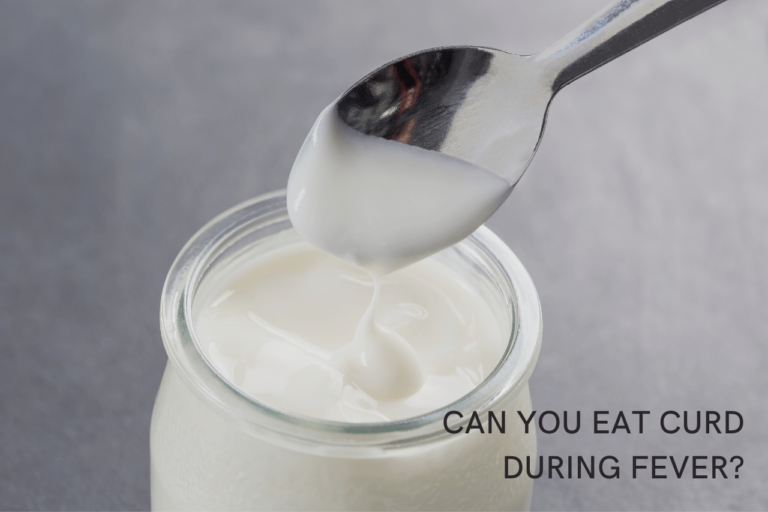Makhana, also known as foxnut, is a nutty-tasting water lily seed popular in India. It is often roasted and eaten as a snack and is also used in Ayurvedic medicine. It is a good source of protein, fiber, and healthy fats. Additionally, it contains vitamins and minerals such as magnesium, potassium, and phosphorus.
While makhana is generally considered safe, there are some potential side effects you may not know. Therefore, in this post, I have compiled a list of 10 side effects of makhana that you should know before consuming it.
But before getting to the list, let’s see the nutrition value of makhana.
Makhana Nutrition Value
Makhana is a nutrient-rich food that has been traditionally used in India for centuries. It is nutritionally powerful because it is a good source of protein, fibre, vitamins, minerals and antioxidants. This makes it a healthy alternative to other unhealthy snacks such as potato chips or cookies.
Here is the nutrition value of makhana per 100 grams:
- Calories: 347
- Carbohydrates: 76.9 gm
- Fat: 0.1 gm
- Protein: 9.7 gm
- Fiber: 14.5 gm
- Calcium: 60 mg
- Magnesium: 67 mg
- Potassium: 1368 mg
- Iron: 1.4 mg
- Manganese: 2.3 mg
7 Little-Known Side Effects Of Makhana

Makhana is popularly count as a superfood, however, eating too much of it can cause some unwanted side effects or health issues. Please note that these side effects are not scientifically proven but are common in most people.
Weight gain
Makhana is a good source of protein and fiber, but they are also high in calories. One ounce (28 grams) of makhana contains about 93 calories, which is more than 100% more calories than the same amount of white rice.
Eating too many calories can lead to weight gain, and makhana is no exception. If you’re trying to lose or maintain a healthy weight, it’s important to watch your calorie intake. Eating a few makhanas here and there is unlikely to cause any weight gain, but eating them on a regular basis in big amounts can add up over time.
Allergic reactions
Nut allergy is one of the most common food allergies in the world, affecting one out of every 200 people.
While makhana is generally safe to consume, there have been some reports of allergic reactions in people who are sensitive to it.
Symptoms of a makhana allergy may include hives, itching, swelling, runny nose, nausea, difficulty breathing and gastrointestinal issues.
If you experience any of these symptoms or feel anything unusual after consuming makhana, it is important to seek medical attention immediately.
Digestive problems
Makhana is frequently consumed as a snack, similar to how popcorn is consumed while watching movies or sporting events. As a result, you may consume excessive makhana without knowing it.
While the high fiber content of makhana can help you feel fuller for longer, eating too much of it can lead to certain digestive issues in no time.
Eating too much fiber can cause bloating, gas, diarrhea and constipation. In addition, fiber can bind to certain medications and reduce their absorption.
Risk of high blood pressure
If you are a fan of makhana, you likely enjoy eating them roasted and salted.
However, it’s important to be aware that some brands of makhana can contain large amounts of salt, up to 1000 mg per 100gm, which can lead to increased sodium levels in the body if consumed regularly.
While high levels of sodium are not necessarily harmful, they can increase blood pressure, which can strain the heart and lead to cardiovascular disease. Too much sodium can also lead to kidney disease, fluid retention, and stomach cancer.
For this reason, it is important to check the sodium content of makhana before purchasing. Or, better yet, choose unprocessed makhana that has not been roasted or salted.
Excessive heat in the body
Makhana is warm in nature and may cause excessive heat in the body. This can lead to dehydration, diarrhea, and stomach upset, especially during pregnancy.
It is advised that women should not consume too many makhanas during pregnancy as they may affect the baby.
Although there is no scientific study that can prove but, it is advisable to avoid too much of it, especially during pregnancy.
Risk of sulfur dioxide
Sulfur dioxide (E220) is a common preservative often used in dried fruits to prevent them from rotting. While it is generally considered safe, some risks are associated with its use.
Sulfur dioxide can trigger asthma attacks in some people. If you have asthma or are sensitive to sulfur dioxide, even a small amount of sulfite can be harmful to your health. It might cause serious side effects, including breathing problems, life-threatening allergy-like symptoms or, in rare cases, death.
It is best to avoid makhana that has been treated with this preservative.
Risk in special medications
People on special medications should also avoid eating too much makhana, as they may interact with the medication and cause side effects.
If you are on special medications, it is best to speak with your doctor about whether to eat or not.
How to avoid the side effects of makhana
However, here are some tips to follow when eating makhana.
- Avoid makhana if you have constipation issues already.
- Avoid too much salted and roasted makhana.
- If you are eating other dry fruits with makhana, make sure to drink plenty of water throughout the day to reduce the body heat.
- While makhana is considered safe to consume for diabetes, it’s best to consult with your doctor before eating it.
- Always choose makhana that is free of preservatives.
- If you see any unusual symptoms after consuming makhana, immediately stop and ask your doctor.
How much makhana should you eat in a day?
As you are aware that consuming makhana has both benefits and side effects. To avoid any negative consequences, it is recommended only to eat around 30 grams, or a handful, of makhana per day. This quantity of makhana would be enough to provide you with all the benefits it has.
Final words
In conclusion, makhana is great food with many benefits. However, limiting your intake to only a handful in a day is important, as consuming too much of it can lead to various side effects such as weight gain, high blood pressure, allergic reactions, digestive issues, excessive heat and other risks from sulfur dioxide.
Found this information helpful? Share it with the world.
Meanwhile, here are a few other posts that might be helpful for you:





